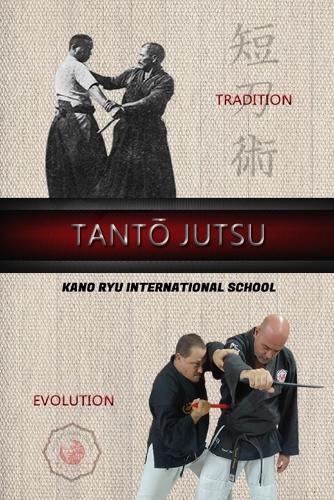Readings Newsletter
Become a Readings Member to make your shopping experience even easier.
Sign in or sign up for free!
You’re not far away from qualifying for FREE standard shipping within Australia
You’ve qualified for FREE standard shipping within Australia
The cart is loading…






This title is printed to order. This book may have been self-published. If so, we cannot guarantee the quality of the content. In the main most books will have gone through the editing process however some may not. We therefore suggest that you be aware of this before ordering this book. If in doubt check either the author or publisher’s details as we are unable to accept any returns unless they are faulty. Please contact us if you have any questions.
The study of japanese bujutsu/budo knife techniques comes from centuries ago. The so-called Tanto Jutsu was halfway between being a discipline in itself and being a complement of the school's programme. Tanto was part of the feudal warrior equipment in Japan and, as we will comment later in this study, the handling and concealment of this weapon had certain peculiarities due to its small size compared to the Kodachi or the Katana. Tanto jutsu doesn't refer only to defence forms against sharp weapons (tanto dori); it also refers to the use and improvement to acquire the skills to properly attack in case it may be necessary (military use, espionage, etc). In this book, we have discussed several aspects, fundamental for understanding of the history, tradition, evolution and talent management, with two very different perspectives; the techniques from the past and the current ones. Regarding the first ones, we will show the different, classic forms the traditional schools had for solving the various situations against tanto attacks, whereas in the current techniques' chapter, we have developed technical sequences that are used today in many military or police-defense programmes. We have also added a chapter on anatomical lesions caused by the tanto; not only from the perspective of the damage it causes but also from the one of the exact point where the cuts or the thrusts must be done. Thanks to all Kano Ryu International School members for their collaboration and support in the implementation of this work.
$9.00 standard shipping within Australia
FREE standard shipping within Australia for orders over $100.00
Express & International shipping calculated at checkout
This title is printed to order. This book may have been self-published. If so, we cannot guarantee the quality of the content. In the main most books will have gone through the editing process however some may not. We therefore suggest that you be aware of this before ordering this book. If in doubt check either the author or publisher’s details as we are unable to accept any returns unless they are faulty. Please contact us if you have any questions.
The study of japanese bujutsu/budo knife techniques comes from centuries ago. The so-called Tanto Jutsu was halfway between being a discipline in itself and being a complement of the school's programme. Tanto was part of the feudal warrior equipment in Japan and, as we will comment later in this study, the handling and concealment of this weapon had certain peculiarities due to its small size compared to the Kodachi or the Katana. Tanto jutsu doesn't refer only to defence forms against sharp weapons (tanto dori); it also refers to the use and improvement to acquire the skills to properly attack in case it may be necessary (military use, espionage, etc). In this book, we have discussed several aspects, fundamental for understanding of the history, tradition, evolution and talent management, with two very different perspectives; the techniques from the past and the current ones. Regarding the first ones, we will show the different, classic forms the traditional schools had for solving the various situations against tanto attacks, whereas in the current techniques' chapter, we have developed technical sequences that are used today in many military or police-defense programmes. We have also added a chapter on anatomical lesions caused by the tanto; not only from the perspective of the damage it causes but also from the one of the exact point where the cuts or the thrusts must be done. Thanks to all Kano Ryu International School members for their collaboration and support in the implementation of this work.